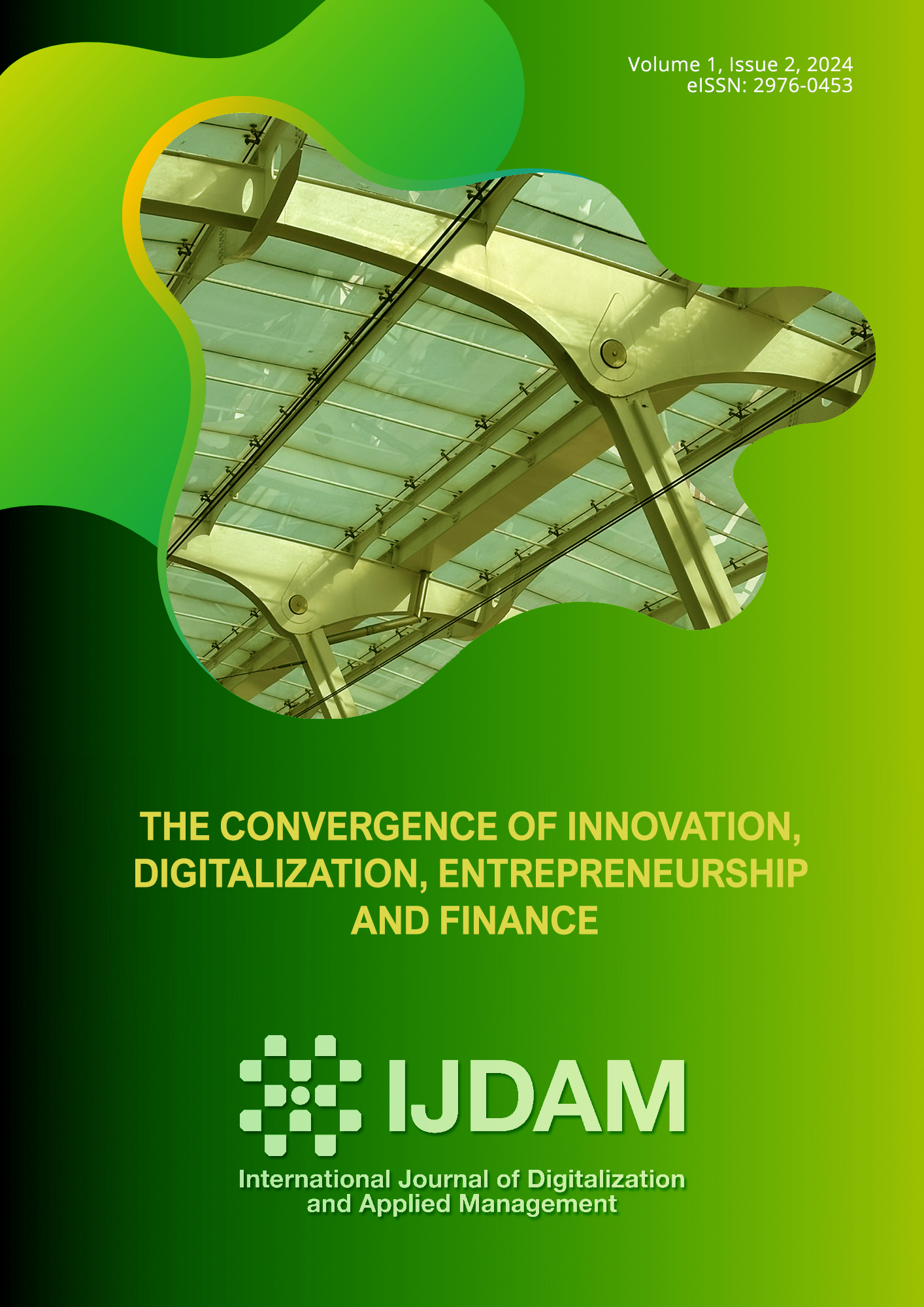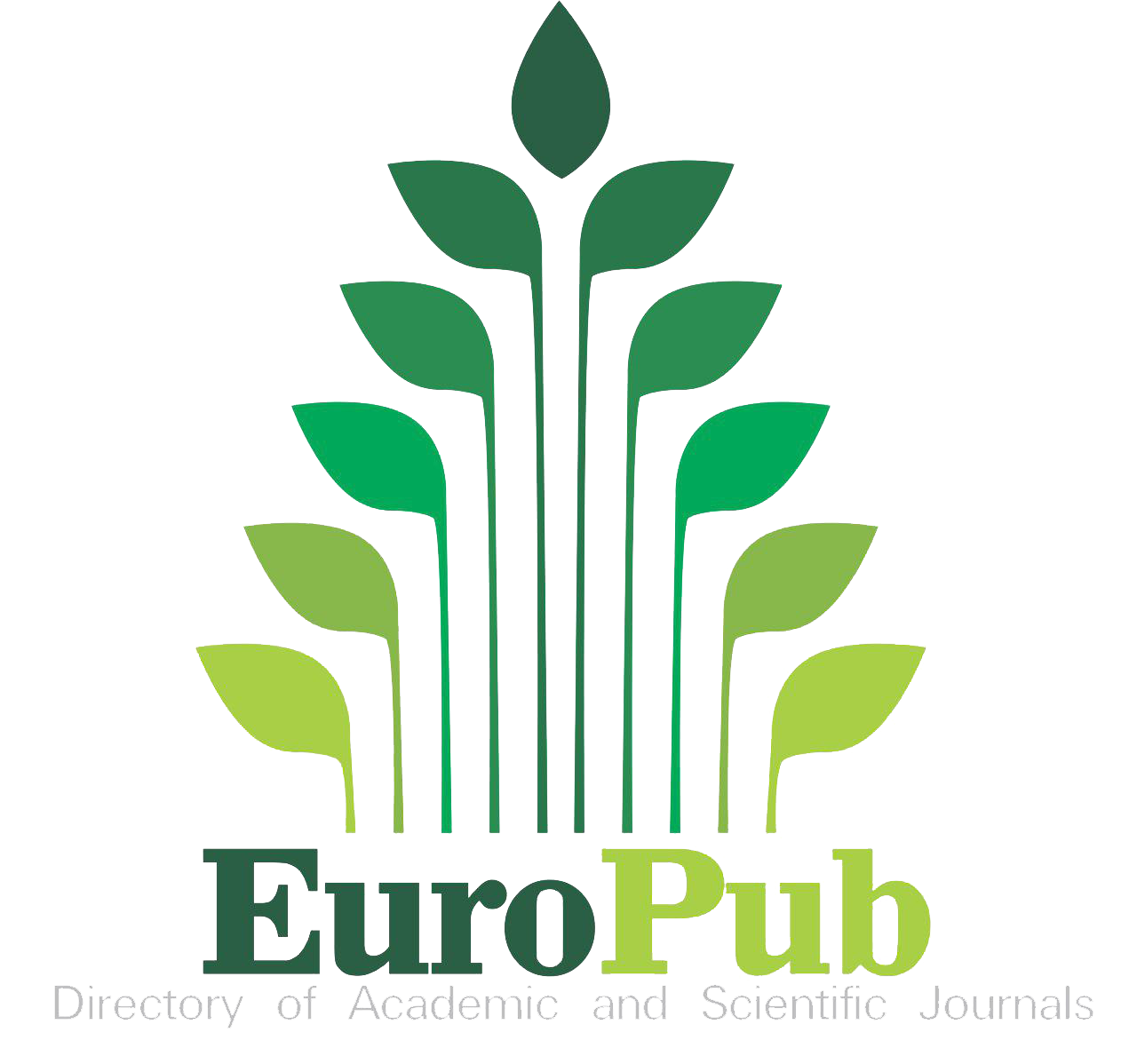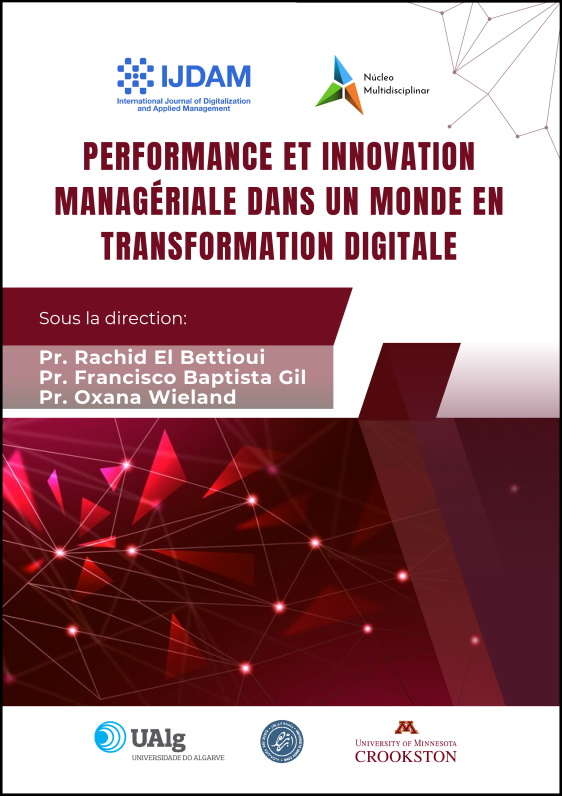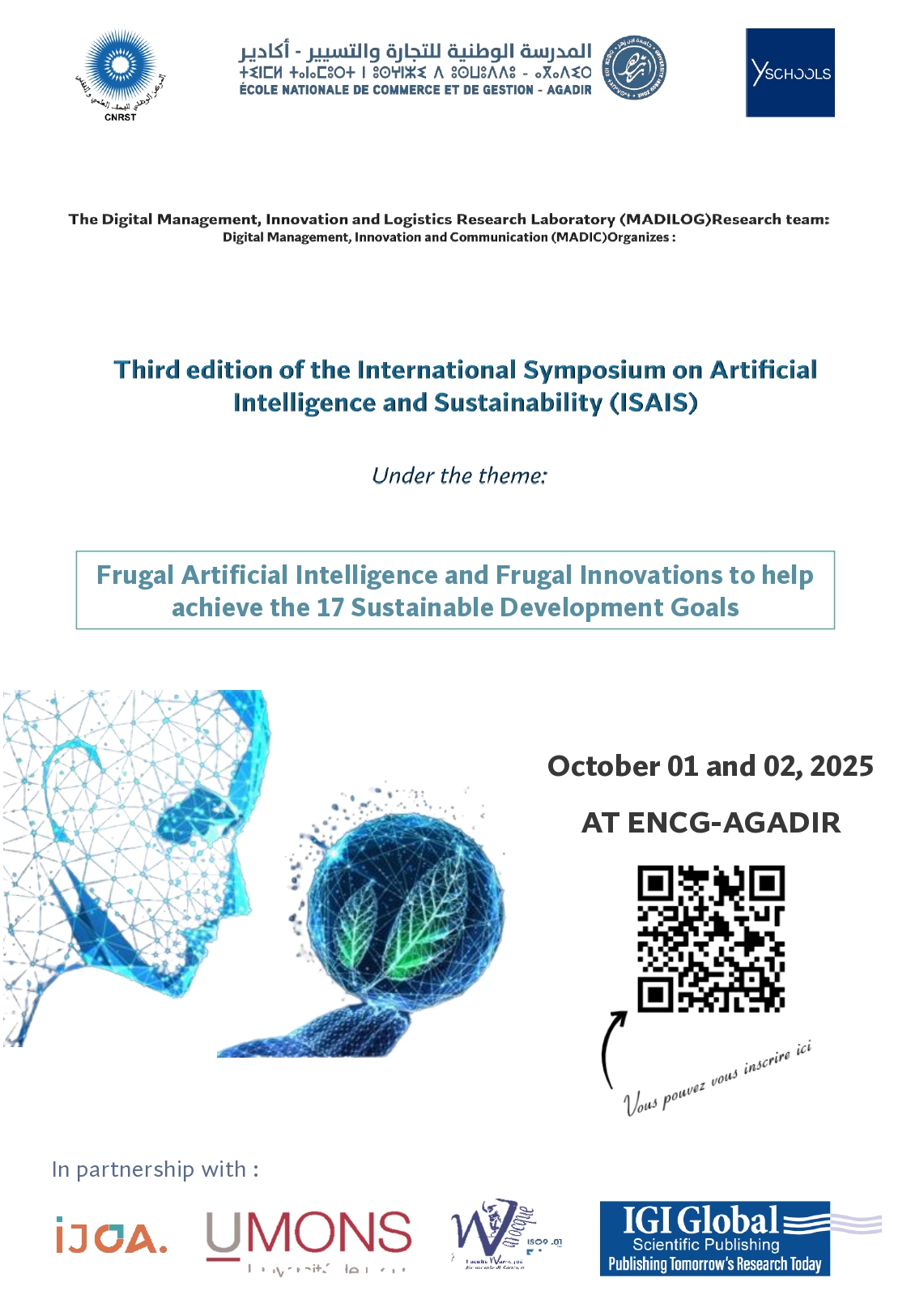Managerial Profile and Organizational Resilience
The Case of Private Schools
DOI:
https://doi.org/10.23882/ijdam.24135Keywords:
Organizational Resilience, Innovation, Managerial Traits, Anticipation, Adaptive Capacity.Abstract
This study aims to investigate how the profiles of private high school managers in Morocco, including their sociodemographic and managerial characteristics, affect organizational resilience. Furthermore, it examines the moderating role of innovation in this relationship. The research employs a survey instrument designed to collect data from managers of private high schools across Morocco. The conceptual framework includes variables such as leader profiles (sociodemographic and managerial), organizational resilience (anticipation and adaptive capacity), and innovation. We test hypotheses to determine the direct effects of leader profiles on resilience and the moderating effect of innovation. Preliminary findings indicate that certain sociodemographic and managerial traits of high school managers significantly influence the resilience of their institutions. Moreover, the presence of innovative practices appears to strengthen the positive impact of these leader profiles on organizational resilience. The study will provide empirical evidence that the profiles of how private high school managers in Morocco play a role in organizational resilience. Additionally, fostering innovation within these institutions further influences this effect. These insights will offer valuable guidance for educational leaders and policymakers aiming to build resilient educational environments.
References
Al-Hakimi, M., Borade, D., & Saleh, M. (2021). The mediating role of innovation between entrepreneurial orientation and supply chain resilience. Asia-Pacific Journal of Business Administration, ahead-of-print. https://doi.org/10.1108/APJBA-10-2020-0376
Aljanazrah, A., Yerousis, G. P., Hamed, G., & Khlaif, Z. N. (2022). Digital transformation in times of crisis : Challenges, attitudes, opportunities and lessons learned from students’ and faculty members’ perspectives. 7. https://doi.org/10.3389/feduc.2022.1047035
Baroudi, S., & Lytras, M. D. (2024). Leadership and Innovation in Higher Education in 2035 : The Open Research Agenda. In S. Baroudi & M. D. Lytras (Éds.), Transformative Leadership and Sustainable Innovation in Education : Interdisciplinary Perspectives (p. 1‑10). Emerald Publishing Limited. https://doi.org/10.1108/978-1-83753-536-120241001
Bass, B. M. (2000). The Future of Leadership in Learning Organizations. Journal of Leadership Studies, 7(3), 18‑40. https://doi.org/10.1177/107179190000700302
Bass, B. M., & Avolio, B. J. (2004). Multifactor Leadership Questionnaire : MLQ ; Manual and Sampler Set. Mind Garden.
Birrou, Z., Kich, A., & Larouz, M. (2021). Rethinking the Education Paradigm in Morocco in the Covid-19 Context- Assessment of Resilience Curricula in Higher Education. Vivid: Journal of Language and Literature. https://doi.org/10.25077/VJ.10.1.41-51.2021
Bloch, C. (2007). Assessing recent development in innovation measurement : The third edition of the Oslo Manual. Science & Public Policy - SCI PUBLIC POLICY, 34, 23‑34. https://doi.org/10.3152/030234207X190487
Boyatzis, R. E. (2006). Leadership competencies. In Inspiring Leaders. Routledge.
Boyatzis, R. E. (2019). Emotional Intelligence and Its Measurement. In Oxford Research Encyclopedia of Business and Management. https://oxfordre.com/business/business/business/view/10.1093/acrefore/9780190224851.001.0001/acrefore-9780190224851-e-159
Elmeski, M. (2015). Principals as leaders of school and community revitalization : A phenomenological study of three urban schools in Morocco. International Journal of Leadership in Education, 18, 1‑18. https://doi.org/10.1080/13603124.2013.815803
Eri, R., Gudimetla, P., Star, S., Rowlands, & Girgla, A. (2021). Digital resilience in higher education in response to COVID-19 pandemic : Student Perceptions from Asia and Australia. Journal of University Teaching and Learning Practice, 18(5). https://doi.org/10.53761/1.18.5.7
Forster, G., & Fenwick, J. (2015). The influence of Islamic values on management practice in Morocco. European Management Journal, 33, 143‑156. https://doi.org/10.1016/J.EMJ.2014.04.002
García-Morales, V. J., Garrido-Moreno, A., & Martín-Rojas, R. (2021). The Transformation of Higher Education After the COVID Disruption : Emerging Challenges in an Online Learning Scenario. Frontiers in Psychology, 12. https://doi.org/10.3389/fpsyg.2021.616059
Gault, F. (2013). The Oslo Manual. 41‑59. https://doi.org/10.4337/9780857933652.00010
Goleman, D. (1998). Working with Emotional Intelligence. Bantam Books.
He, Z., Huang, H., Choi, H., & Bilgihan, A. (2022). Building organizational resilience with digital transformation. Journal of Service Management. https://doi.org/10.1108/josm-06-2021-0216
Kim, J., Lee, H. W., & Chung, G. H. (2023). Organizational resilience : Leadership, operational and individual responses to the COVID-19 pandemic. Journal of Organizational Change Management, 37(1), 92‑115. https://doi.org/10.1108/JOCM-05-2023-0160
Kurniawan, D., Tambunan, D., & Dewi, G. (2024). Relationships Among Crisis Leadership, Innovation Capability, Implementation of Business Continuity Management, and Sustainable Performance in The Covid-19 Pandemic. The South East Asian Journal of Management, 18(1). https://doi.org/10.21002/seam.v18i1.1457
Mafimisebi, O. P., Obembe, D., & Ogunsade, A. I. (2023). Planned, improvised or resilience : Small business owner-managers’ perception and response to crises in crisis-prone environments. Journal of General Management, 03063070231159568. https://doi.org/10.1177/03063070231159568
Nguyen, M., & Sharma, P. (2024). Interactive impact of transformational leadership and organizational innovation on online knowledge sharing : A knowledge management perspective. Journal of Knowledge Management, 28(4), 1164‑1182. https://doi.org/10.1108/JKM-09-2022-0758
Onorato, M. (2013). Transformational Leadership Style in the Educational Sector : An Empirical Study of Corporate Managers and Educational Leaders. The Academy of Educational Leadership Journal, 17. https://consensus.app/papers/leadership-style-educational-sector-empirical-study-onorato/d01e0ccaf85a5a798089db65355db035/
Podsakoff, P., MacKenzie, S., Moorman, R., & Fetter, R. (1990). Transformational leader behaviors and their effects on followers’ trust in leader, satisfaction, and organizational citizenship behaviors. The Leadership Quarterly, 1, 107‑142. https://doi.org/10.1016/1048-9843(90)90009-7
Rasli, A., Tee, M., Lai, Y. L., Tiu, Z. C., & Soon, E. H. (2022). Post-COVID-19 strategies for higher education institutions in dealing with unknown and uncertainties. Frontiers in Education, 7(992063). https://doi.org/10.3389/feduc.2022.992063
Rocchetta, S. (2024). Resilience and Innovation : A Conceptual Approach. In Innovation—Research and Development for Human, Economic and Institutional Growth. IntechOpen. https://doi.org/10.5772/intechopen.113842
Schoeman, I. M. (2018). An Approach To Resilience In Transportation Planning. International Journal of Sustainable Development and Planning, 13(8), 1061‑1071. https://doi.org/10.2495/SDP-V13-N8-1061-1071
Sharma, S., & Sharma, S. K. (2015). Psychometric evaluation of BRT-13B: A shorter version of the Benchmark Resilience Tool. Prabandhan: Indian Journal of Management, 8(3), 33‑47. Scopus. https://doi.org/10.17010/pijom/2015/v8i3/61293
Wafiq, M. E., Tridane, M., & Belaaouad, S. (2021). Educational Leadership : Characterization of Emerging Practices. Open Journal of Leadership. https://doi.org/10.4236/OJL.2021.101001
Yukl, G., Gordon, A., & Taber, T. (2002). A Hierarchical Taxonomy of Leadership Behavior : Integrating a Half Century of Behavior Research. Journal of Leadership & Organizational Studies, 9(1), 15‑32. https://doi.org/10.1177/107179190200900102
Downloads
Published
How to Cite
Issue
Section
License
Copyright (c) 2024 El Mehdi KADOUSSI , Ahmed ABRIANE

This work is licensed under a Creative Commons Attribution-NonCommercial 4.0 International License.


 Portugal
Portugal









